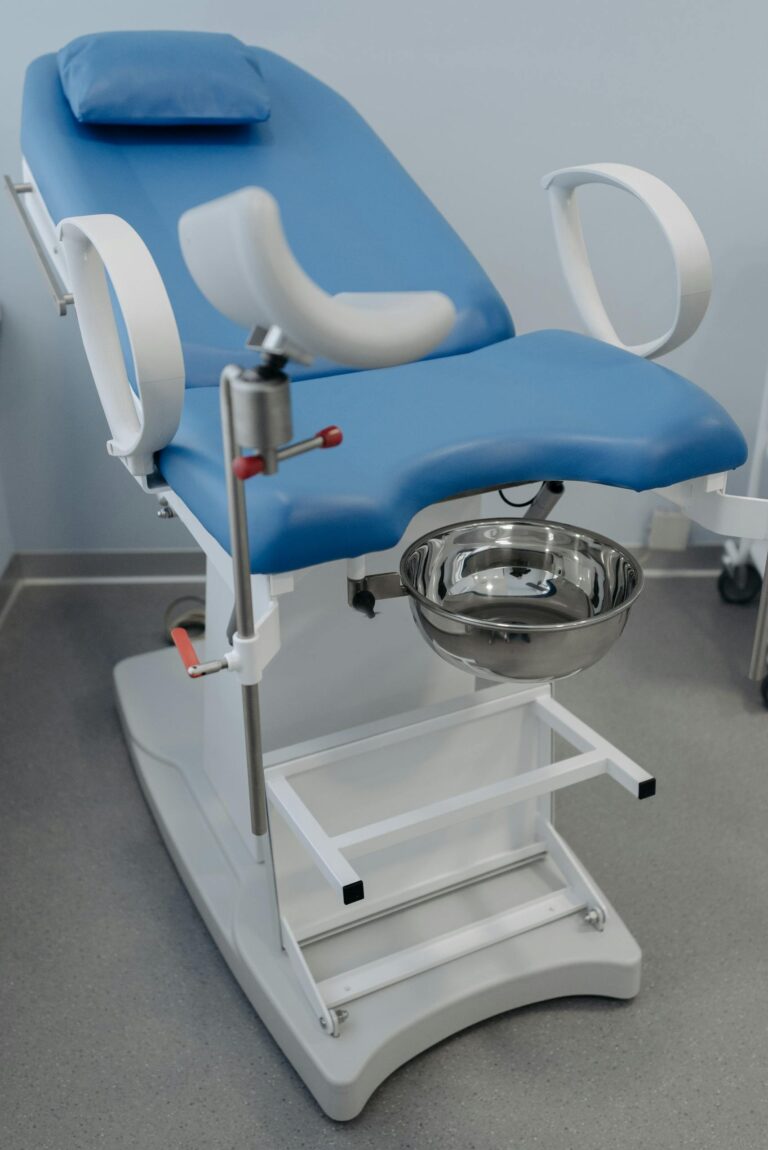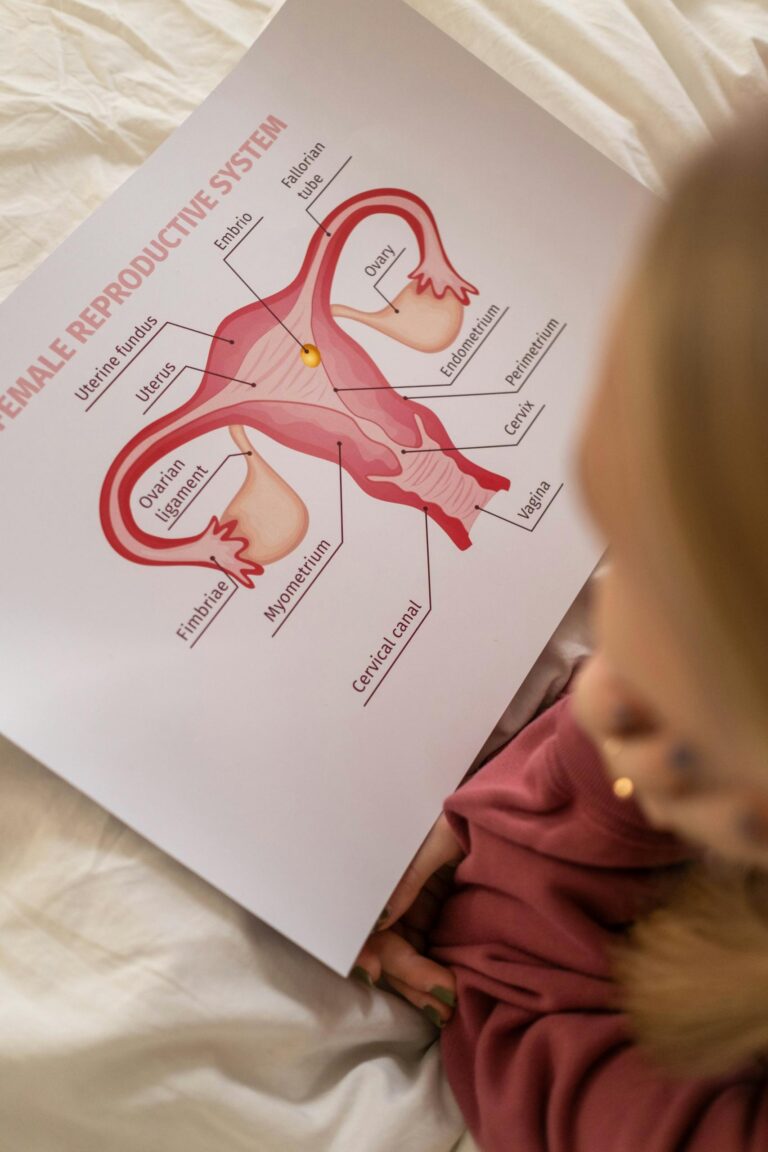Prevention and Early Detection of Uterine Conditions
A routine gynecological exam is a comprehensive checkup focused on a woman’s reproductive health. Here’s what it typically entails:
1. Medical History Review
- Discussion of your overall health, menstrual cycle, sexual activity, and any symptoms or concerns.
- Review of family history related to reproductive health issues like cancer, fibroids, or endometriosis. It’s okay if you don’t know your family’s medical history but if you do know, it helps. Why does it help? It helps providers know what to keep more of an eye out for.
- Questions about lifestyle habits (e.g., smoking, alcohol use) and medications.
2. Physical Exam
- Vital Signs: Checking weight, blood pressure, and sometimes body temperature.
- Breast Exam: Manual examination to check for lumps, changes in tissue, or abnormalities.
- Abdominal Exam: Palpating the abdomen to check for tenderness or masses.
3. Pelvic Exam
- External Examination: Visual inspection of the vulva to identify abnormalities like irritation, lesions, or infections.
- Speculum Examination: A speculum is inserted into the vagina to view the vaginal walls and cervix for signs of infection, inflammation, or irregularities.
- Pap Smear (if due): A swab is taken from the cervix to screen for precancerous changes and HPV.
4. Bimanual Exam
- The provider uses gloved fingers inside the vagina while pressing on the abdomen to feel the uterus, ovaries, and other pelvic organs for size, shape, and tenderness.

5. Testing (If Needed)
- STD Testing: Swabs or blood tests may be done based on sexual history or symptoms.
- Urinalysis: To check for infections or other urinary issues.
- Blood Work: If hormonal imbalances or other health issues are suspected.
6. Counseling and Preventative Care
- Contraception Discussion: Discussion of birth control methods if desired and/or needed.
- Vaccinations: HPV vaccine or other necessary immunizations if desired and/or needed.
- Lifestyle Tips: General guidance on nutrition, exercise, and managing stress for optimal reproductive health.
Frequency
- Annual visits are recommended, though Pap smears may only be needed every 3-5 years depending on age and health history.
Routine gynecological exams are a proactive way to protect your reproductive health and address concerns early. If you have specific symptoms or conditions, additional tests or procedures may be recommended.
Why Do Routine Gynecological Exams Matter?
Routine gynecological exams empower women to stay informed about their health, prevent complications, and address issues early for better outcomes. Routine gynecological exams are crucial for maintaining overall reproductive health and catching potential issues early. Here’s more information about why they matter:
Early Detection of Health Issues
- Cancer Screening: Exams can detect signs of cervical, uterine, or ovarian cancer early when treatment is most effective.
- STI Testing: Regular testing helps identify and treat sexually transmitted infections that may otherwise lead to complications like infertility.
- Uterine and Ovarian Disorders: Conditions like uterine fibroids, endometriosis, or ovarian cysts can be identified and managed before they worsen.
Preventative Care
- HPV and Pap Smear Tests: These screenings help detect precancerous changes in the cervix, reducing the risk of cervical cancer or catching it early. If caught earlier, treatment is more successful.
- Vaccinations: Gynecologists can provide vaccines like the HPV vaccine to prevent infections linked to certain cancers.
Addressing Irregular Symptoms
- If you experience pain, irregular periods, or unusual discharge, routine exams offer an opportunity to discuss and diagnose these issues.
Family Planning and Fertility
- Routine visits can offer valuable guidance on a variety of topics essential for future family planning. They provide insights into contraception options, ensuring you have the knowledge to make informed decisions that align with your lifestyle and goals. Additionally, these visits can address fertility preservation, offering strategies to maintain reproductive health for future family-building plans. Furthermore, they cover preconception health, emphasizing the importance of preparing your body and mind for a healthy pregnancy when the time comes. Overall, these visits empower individuals with the information and support needed to achieve their future family planning aspirations.
Monitoring Hormonal Health
- Gynecologists can help manage hormonal changes during puberty, pregnancy, and menopause, ensuring long-term health and well-being.
Building a Trusted Relationship
- Regular visits help establish a strong, trusting relationship with your healthcare provider, creating a safe and supportive environment where you feel comfortable discussing sensitive or personal health concerns. Over time, this trust allows for open communication about issues like menstrual irregularities, sexual health, family planning, or menopause, which can otherwise feel difficult to address. A strong provider-patient relationship also ensures that your care is personalized, proactive, and aligned with your unique health goals, making it easier to detect and address potential problems early. This ongoing partnership empowers you to take charge of your reproductive health with confidence and consistency.







